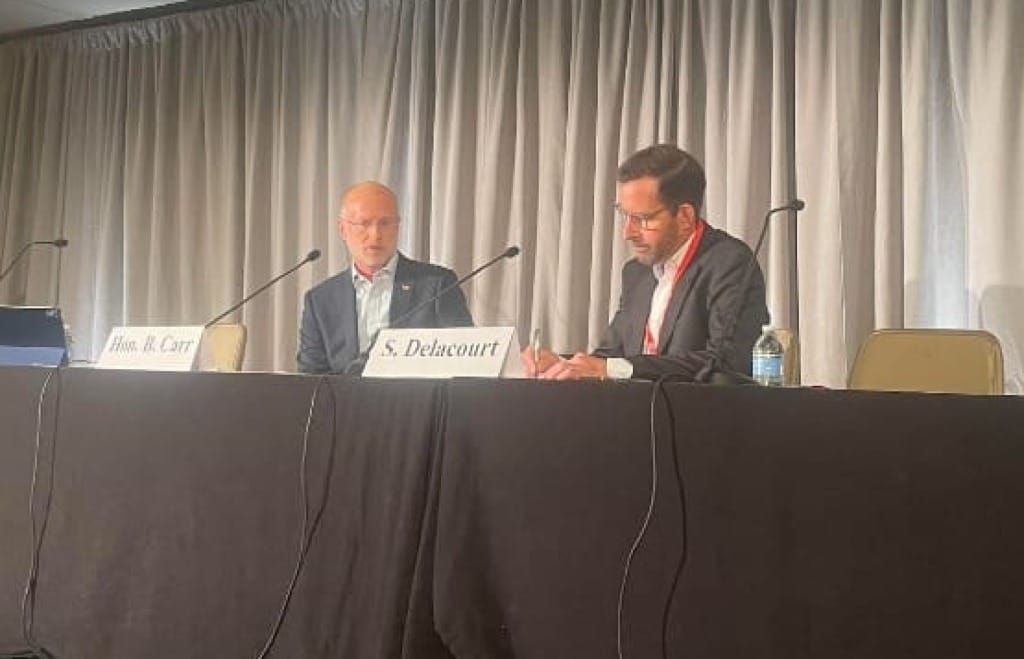Incoming FCC Chairman Carr Takes Aim at Censorship, Infrastructure
'We’ve been living under this cloud of censorship,' Carr said.
Ari Bertenthal

WASHINGTON, Dec. 3, 2024 – The Federal Communications Commission’s incoming Chairman spoke Tuesday about his plans for the agency in the new Trump administration.
FCC Commissioner Brendan Carr, a Republican that President-elect Donald Trump has picked to lead the FCC starting in January, covered a wide range of contentious topics during the discussion including censorship, infrastructure, and national security.
Carr was speaking at the 42nd annual Institute on Telecommunications Policy and Regulation, hosted by the Practicing Law Institute here The discussion was moderated by Wiley Rein Partner Scott Delacourt.
“We’ve been living under this cloud of censorship for the past several years,” Carr said during the discussion. “[That] censorship is holding Americans back from economic vitality.”
Carr, an established critic of both censorship and big tech, expects to prioritize free speech during his tenure as FCC Chairman.
Carr also raised long-standing concerns about infrastructure and broadband deployment.
Carr has repeatedly called on the Biden administration to do a better job of deployment. He has said the $42.45 billion Broadband Equity, Access, and Deployment program has not used its time or money efficiently.
“We’ve been spending a lot of money [on infrastructure],” Carr said. “It's been like stepping on the gas and the brake at the same time.”
The National Telecommunications and Information Administration, the body overseeing the BEAD program, has yet to disburse its funding to grant recipients. All eligible entities under the BEAD program have been approved through their initial proposals for funding as of Nov. 19, 2024.
Carr further discussed infrastructure through the lens of national security. Pointing to the progress made by the Rip and Replace program, Carr noted that there is still much work to be done in order to secure America’s networks against foreign threats.
Rip and Replace was mandated by a 2020 law to reimburse smaller providers for swapping out network gear from Chinese companies Huawei and ZTE, deemed security threats by lawmakers. The program was allocated $1.9 billion, but the agency says it would need an additional $3.08 billion to fully pay all the program’s reimbursement requests.
In addition to censorship, infrastructure and national security, Carr took time to discuss spectrum access, the Universal Service Fund, and the space economy.









Member discussion